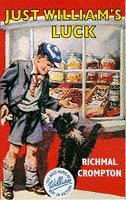Grizzly Bear - Veckatimest

I feel a need to tread carefully with this one. Music reviews, especially on blogs very often only come in one gear: full-throttle, 5 star, album-of-the-millennium, life-changing, bar-raising hyperbole. I'm as guilty of that as anyone, with enthusiasm shown for Fleet Foxes and Animal Collective coming back to bite me slightly. Grizzly Bear have sneaked up on me from nowhere after a recommendation from James Dalrymple and their name has been mentioned in the same breath as the bands above, partly because their music could be said to inhabit a space between them (Not as folky as the Foxes nor as out there as the Animal's) but mainly because they have all been caught up in the religious fervour of the on-line music reviewing biz.
So with that caveat let me get going with my praise for this quite brilliant album. Grizzly Bear's last, Yellow House, was filled with lots of interesting stuff, an album that created a real atmosphere and rewarded a listening from beginning to end. This follow-up contains far more stand alone tracks, which I'm sure will prove to be far more radio-friendly and lead to much better exposure for the band, whilst some live performances on Later and Letterman won't have hurt either. Two Weeks and While You Wait For The Others, the tracks they performed on Later, are both standouts. The former is a wonderful sunny track punctuated by plonky piano chords which aren't a million miles away from It's A Hard Knock Life from the musical Annie, emphatic organ and bass and a melody which makes it an obvious first single. I defy you not to tap your feet as it begins or nod your head as the organ arpeggios carry the chorus. The latter is far more complex, its lyrics carrying a cruel edge, ('You could beg for forgiveness/As long as you like/Or just wait out the evening/You'll only leave me dry...So I'll ask you kindly to make your way'), the sound of the guitars making it sound like a track from another era but their combination with the vocals and the structure of the song mean it sounds very much of today.
The album's opener Southern Point is typical of the band, managing to start off sounding like one kind of track before carnival drums take it somewhere else, then stripping back and building up layers of sound again, showcasing some of the different styles they are capable of, not really following a verse/chorus structure, not to mention a couple of false endings. It's also an example of their confidence, which manifests itself not so much in being audacious but by sounding completely in control of their music, making music which is uniquely theirs. At times on this album they seem to have the kind of confidence The Beatles must have had at the height of their powers. The beautiful vocals are evident on All We Ask with its haunting closing refrain of 'I can't get out of what I'm into with you' and Fine For Now shows that whilst they may be compared to Fleet Foxes they are capable of making music which contains more variety and lyrics which cut to the quick, 'If it’s all or nothing, then let me go'.
That said, there are moments which don't work so well. Ready, Able and About Face are more like the atmospheric but aimless tracks from Yellow House which some will love but after the strength of what has come before (and will come after) they lack grounding. Perhaps these are the kind of tracks that will reward repeated listening. Where that eclectic musicality can work is on a track like I Live With You which seems to contain more narrative than the simple lyrics alone. Many tracks on the album seem to deal with relationships under threat, at that point at which they collapse or survive. Here the music is almost theatrically descriptive and the threat is more like that of attack, 'They'll try, they'll try, they'll try/To keep us apart...You brought us this far/We'll do what we can'. (This may also be one of the few albums to take a fish like the humble dory and spin out a track which is both experimental and oddly touching.)
There is a quality that both albums have in common which is difficult to name, something hard to grasp. I don't want to use a word like dreamy, although that's exactly what a track like Cheerleader is ('I'm cheerleading myself/I should've made it matter'). It certainly isn't light, one critic has already accused the album of being 'demanding', but it is otherwordly. Like the best bands Grizzly Bear are quickly developing something which is theirs alone and the real coup of this album may be to have found a way to get that sound across in a far more palatable form than previously but without concession. As both Ed Droste and Daniel Rossen sing on Hold Still, 'I'll take one chance/Without compromise'. This might be the only chance they need to provide 2009 with one of its best albums.
Those 'Later...' live performances can be seen here.
Read more...
















